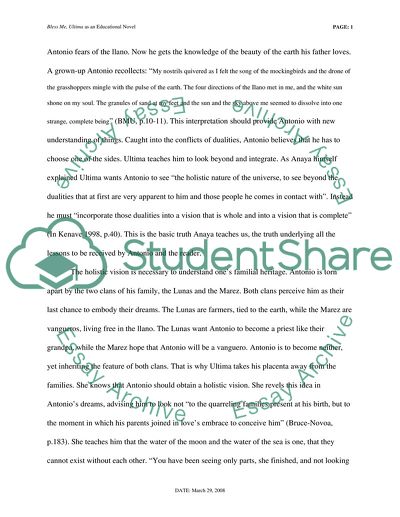Cite this document
(“Bless Me, Ultima As an Educational Novel Essay Example | Topics and Well Written Essays - 1750 words”, n.d.)
Retrieved from https://studentshare.org/literature/1545353-bless-me-ultima-as-an-educational-novel
Retrieved from https://studentshare.org/literature/1545353-bless-me-ultima-as-an-educational-novel
(Bless Me, Ultima As an Educational Novel Essay Example | Topics and Well Written Essays - 1750 Words)
https://studentshare.org/literature/1545353-bless-me-ultima-as-an-educational-novel.
https://studentshare.org/literature/1545353-bless-me-ultima-as-an-educational-novel.
“Bless Me, Ultima As an Educational Novel Essay Example | Topics and Well Written Essays - 1750 Words”, n.d. https://studentshare.org/literature/1545353-bless-me-ultima-as-an-educational-novel.


